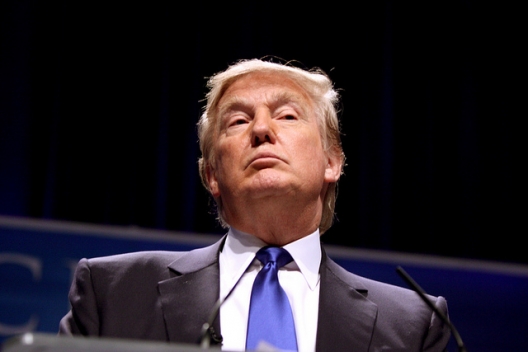 Mr. [Donald] Trump has a stream-of-unconsciousness way of speaking, so it isn’t clear whether he knows that NATO spent a decade fighting terrorism in Afghanistan, before President Obama pulled up stakes on the mission. Great Britain lost 455 troops fighting the Taliban and other terrorists in the country, Canada lost 158, and other NATO members lost nearly 400. That doesn’t match the U.S. commitment, but Europe’s NATO members sacrificed in Afghanistan in response to terrorist attacks in the U.S.
Mr. [Donald] Trump has a stream-of-unconsciousness way of speaking, so it isn’t clear whether he knows that NATO spent a decade fighting terrorism in Afghanistan, before President Obama pulled up stakes on the mission. Great Britain lost 455 troops fighting the Taliban and other terrorists in the country, Canada lost 158, and other NATO members lost nearly 400. That doesn’t match the U.S. commitment, but Europe’s NATO members sacrificed in Afghanistan in response to terrorist attacks in the U.S.
The New York real-estate developer also doesn’t seem to realize that the threat NATO currently faces from the Kremlin is increasing and worse than at any time since the Cold War ended. Russian jets persistently threaten and violate NATO airspace, Russian operatives have staged assassinations and kidnappings in NATO countries, and Russian diplomats have even threatened nuclear attacks on NATO states.
Mr. Trump has famously said he is his own foreign-policy strategist, so perhaps he should consider that NATO’s current role is to prevent the emergence of a regional Russian hegemon. Such a Russia could dominate Eastern Europe and exercise authoritarian leverage over the rest. Investing in the alliance now is a way to deter war so we don’t have to spend more to fight one later….
Some Europeans—the Germans in particular—think they can manage threats such as Russia and terrorism in different, nonmilitary ways. But they should be wary of what will happen if the carrot of commercial deals with the Kremlin such as gas pipelines isn’t backed by the stick of a strong collective defense.
Mr. Trump’s ramblings on NATO are a double-edged warning: Europeans need to invest more in defense, both to prepare for the possibility if Americans take an isolationist turn in November, and to ensure that America’s security role in Europe remains politically palatable to U.S. voters.
Image: Donald Trump, Feb. 10, 2011 (photo: Gage Skidmore)
